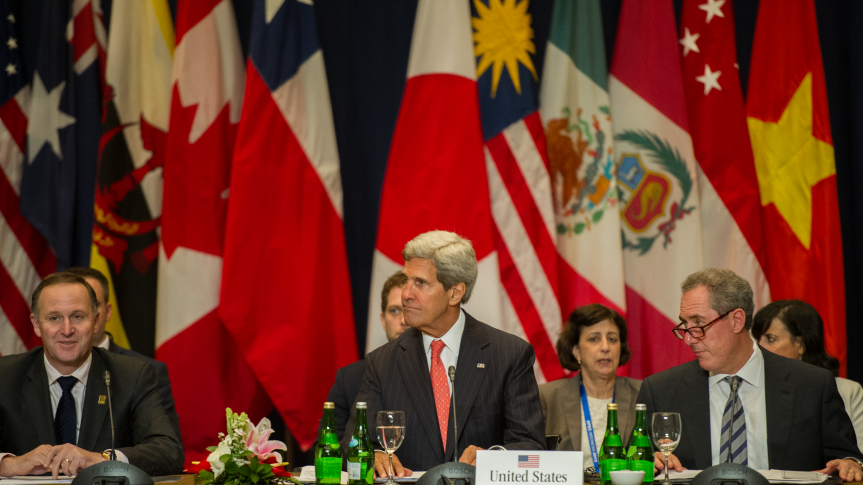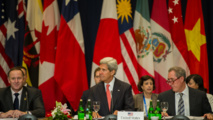Today, the agreement on the establishment of Trans-Pacific Partnership (TTP) was officially signed in Auckland, New Zealand. 12 countries’ trade ministers - Australia, Brunei, Vietnam, Canada, Malaysia, Mexico, New Zealand, Peru, the United States, Singapore, Chile and Japan - signed the document. The Agreement will enter into force once it is ratified by at least six countries, constituting not less than 85% of the trading’s unit total GDP (primarily the United States and Japan). Two more years were given for this.
The Obama administration stated that they intend to seek ratification of the document before the end of the year. "TTP allows America, rather than countries such as China, to write the rules of the game for the twenty-first century, which is especially important for such a dynamic region as Asia-Pacific" - the president's statement.
However, some members of Congress do not support the agreement.
Some other countries’ position is ambivalent. In particular, the Ministry of Trade of Canada stated that "signing of the agreement is not equivalent to ratification."
An agreement in principle to form the trading bloc was reached in October last year at a meeting of trade officials in the US city of Atlanta (GA). Then there were published only some general provisions of the agreement (negotiations were kept secret); the document was fully published only at the beginning of November. The text implies that TTP’s creation will allow its participants to abolish custom duties on 18 thousand goods. On the other hand, it will take at least ten and in some cases 25 years. Unlike other regional agreements (for example, ASEAN), the document includes a chapter on the protection of intellectual property rights, on workers' rights - including the mutual recognition of qualifications - and environmental standards (limiting subsidies for catch fish).
source: reuters.com
The Obama administration stated that they intend to seek ratification of the document before the end of the year. "TTP allows America, rather than countries such as China, to write the rules of the game for the twenty-first century, which is especially important for such a dynamic region as Asia-Pacific" - the president's statement.
However, some members of Congress do not support the agreement.
Some other countries’ position is ambivalent. In particular, the Ministry of Trade of Canada stated that "signing of the agreement is not equivalent to ratification."
An agreement in principle to form the trading bloc was reached in October last year at a meeting of trade officials in the US city of Atlanta (GA). Then there were published only some general provisions of the agreement (negotiations were kept secret); the document was fully published only at the beginning of November. The text implies that TTP’s creation will allow its participants to abolish custom duties on 18 thousand goods. On the other hand, it will take at least ten and in some cases 25 years. Unlike other regional agreements (for example, ASEAN), the document includes a chapter on the protection of intellectual property rights, on workers' rights - including the mutual recognition of qualifications - and environmental standards (limiting subsidies for catch fish).
source: reuters.com



















